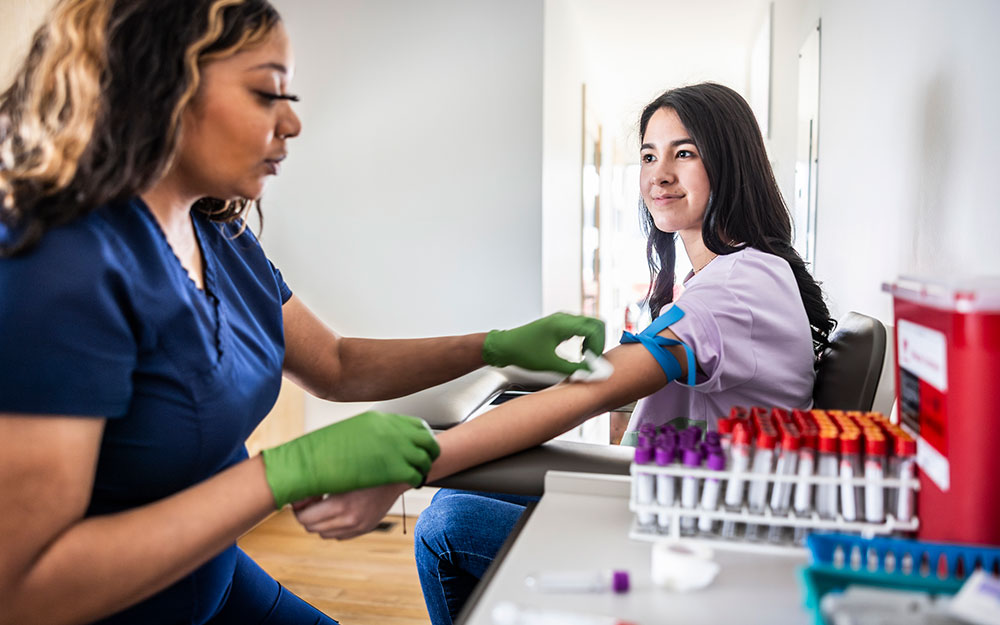New Research on Sudden Cardiac Arrest Shows Racial Gap
Date
July 21, 2021

Date
July 21, 2021
Credits
Medical providers featured in this article
In Brief
{{cta-block}}
A study by researchers at the Smidt Heart Institute found that African-Americans experience sudden cardiac arrest at twice the rate as individuals of white, European descent.
The study—the first scientific analysis comparing the detailed medical histories of patients of different races stricken by the usually fatal condition—found that about 350,000 African-Americans die every year from sudden cardiac arrest.
"We do not know why African-Americans are more likely to have sudden cardiac arrest," said Kyndaron Reinier, PhD, research scientist in the Arrhythmia Research Laboratory at the Heart Institute. "It could be due to the higher burden of illnesses that increase risk of heart disease, like hypertension and diabetes.
"Or it could be genetic, because we know that certain health conditions are more prevalent in particular groups of people. Or the reason could be environmental, such as access to good healthcare. But there is no doubt that there are differences between the races when it comes to clinical outcomes."
"But there is no doubt that there are differences between the races when it comes to clinical outcomes."
The study was part of the Oregon Sudden Unexpected Death Study, a comprehensive, 16-hospital, multiyear assessment of cardiac deaths in the Portland, Oregon, metropolitan area. Led by Sumeet Chugh, MD, the project—ongoing for more than a decade—provides Chugh and his team with unique, community-based information to help determine the causes of sudden cardiac arrest.
"Because sudden cardiac arrest is usually fatal, we have to prevent it before it strikes," said Chugh, associate director of the Heart Institute and the Pauline and Harold Price Professor of Cardiac Electrophysiology. "These findings suggest the possibility that when it comes to prevention of sudden cardiac death, different races and ethnicities may not necessarily be painted with one broad brush."
In this particular study, researchers reviewed medical records of 126 African-Americans and 1,262 Caucasians with sudden cardiac arrest in the Portland area between Feb. 1, 2002, and Jan. 31, 2012. Among the study’s findings:
- African-Americans were an average of six years younger than Caucasians when they experienced sudden cardiac arrest.
- The incidences of sudden cardiac arrest numbered 175 per 100,000 African-American men, compared to 84 per 100,000 Caucasian men.
- For African-American women, the incidences numbered 90 per 100,000, compared to 40 per 100,000 for Caucasian women.
- 52 percent of African-American patients had diabetes, compared to 33 percent of Caucasian patients.
Hypertension, chronic kidney insufficiency and congestive heart failure also were significantly more prevalent among African-Americans in this study.
In 2015, Chugh expanded the research to Southern California with the goal of analyzing sudden cardiac arrests in more ethnically and racially diverse communities. In this new study, known as the Prediction of Sudden Death in Multi-Ethnic Communities—or the PRESTO Network—Chugh's research team is gathering data in Ventura County.
Although sudden cardiac arrest and heart attack often are used interchangeably, the terms are not synonymous. Unlike heart attacks, which are typically caused by clogged coronary arteries reducing blood flow to the heart muscle, sudden cardiac arrest is the result of defective electrical activity of the heart. Victims may have little or no warning of the onset of cardiac arrest, which usually leads to instantaneous death.
In the Newsroom: How Do Race, Ethnicity Affect Risk of Cardiac Arrest?
More on the Electrophysiology Program at Cedars-Sinai





